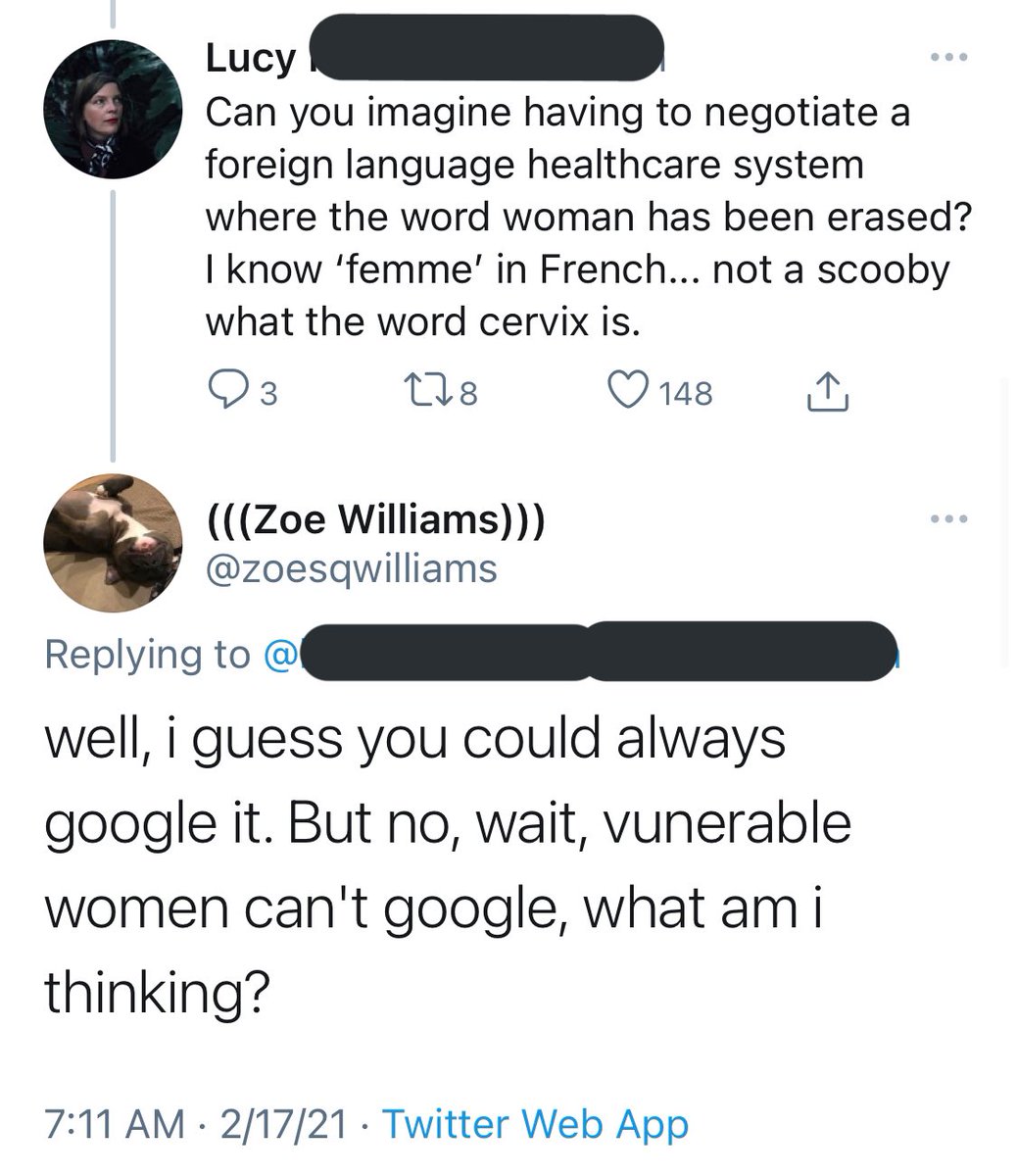If you ever want to throw a fancy term at idiots like Zoe, tell them about epistemic injustice, aka “not knowing that you don’t know what you don’t know.” A thread about knowledge—and words—in feminism.
If you don’t know that you should know what a cervix is, how can you perform a Google search for it? If women don’t have words to rally around health issues that predominantly apply to them, how do they know what to look out for?
Using this “inclusive language” creates epistemic injustice for women and puts them in danger of not having the knowledge that can save their lives. This we instinctively understand but it is handy and, in my opinion meaningful to have a term to encompass it.
I tweeted earlier about how learning the term DARVO allowed me to put words to something I’d experienced but not known how to explain. That women don’t have words to put to the abuse they receive, and thus are unable to fully explain their experiences, is epistemic injustice.
But it’s more than that. Having a term to explain something as prevalent and insidious as DARVO not only allows women to explain their abuse but it also lets them know they’re *not alone.* It tells them, this is common enough that it’s been named. You aren’t crazy.
(Though we may not term it as such,) this is a huge part of why we object to the language that erases the word woman. We have such a short history of being able to organise as women, for women, we’ve only just begun to put words to the whole range of experiences we experience.
That is why it feels so wrong to suddenly have these words taken from us in the name of kindness. You can’t organise around periods. You can’t organise around breast cancer. You can’t organise around pregnancy. Stop using those mean, mean words!
Losing the words we use to describe ourselves, our experiences as women, our feminism, our experiences with misogyny, the origin of patriarchy...these things cause epistemic injustice. They remove our ability to *think* and to *know* the ways in which we are oppressed.
You can see this epistemic injustice alive and well already in libfems, many of whom deny at this point that patriarchy is even a global phenomenon at all (see:the “feminist” library.) After all, if “people with uteruses” get periods, who’s to guess why period stigma even exists?
My point is that women are consistently kept from organising so that we cannot pool our knowledge. And in denying us this, patriarchy keeps us in the dark about how it uses and abuses us. Epistemic injustice.
(If you want to get nerdy about it, having the term epistemic injustice itself cures an epistemic injustice of not having a term to describe epistemic injustice. But I digress  )
)
 )
)
Technically I’ve described hermeneutical injustice, which is one of two types of epistemic injustice. The other is just as relevant to radfem issues—testimonial injustice, or, when a person’s message is discounted because of their identity. Every woman can likely relate to this.
I just want to quickly add: testimonial injustice is exactly what happens when we’re discredited as “bot accounts” or “sock accounts” or even most recently, Omid discounting anon GC academics. Feminists have been writing about this for ages, it’s just the tech that’s changed!
Epistemic injustice was coined by Miranda Fricker and is often used in feminist theories. It’s one of my favourite ideas and is in my opinion an incredibly powerful concept in explaining the loss of language with which we can describe our experiences as women.

 Read on Twitter
Read on Twitter


